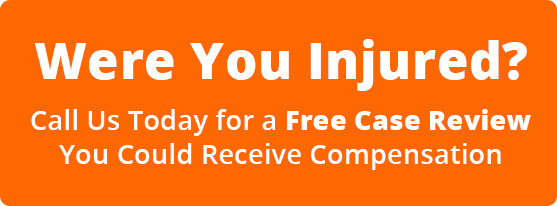Which Motorcycles are Most Expensive to Insure?

Motorcycles are built for all sorts of different purposes. Some are built to go as fast as possible. Others are built to provide a pleasant riding experience, and others still fall somewhere in the middle of the scale. While other categories of motorcycles may be built for fuel efficiency, looks, or some other criteria. Whatever type of motorcycle you may be considering purchasing, it is worth knowing how the type of motorcycle you are looking to get is viewed by insurance companies. Not all motorcycles are treated the same by insurance companies, and there are different rates for different kinds of bikes.
Generally, the most expensive motorcycles to insurance are “supersports” and other performance-oriented vehicles. Luxury bikes can also be expensive to insure, but generally, they are not as expensive to cover as sports bikes. Ultimately, many different factors can determine whether one motorcycle is more expensive to insure than another.
For a free discussion about your situation and concerns, call Law 4 Hogs and speak to our Nj personal injury lawyers today when you call 1-800-529-4464.
What Types of Motorcycles are Most Expensive to Insure?
When determining insurance costs, insurance companies look at a lot of different things, including the type of motorcycle you are looking to get insured.
Sport Bikes
Sport bikes, sometimes called “supersports,” are the most expensive motorcycles to insure. These bikes are designed for incredibly high levels of performance. Essentially, sport bikes are racing bikes that have been slightly adjusted to be better suited for everyday road use. Sport bikes can go incredibly fast and turn on a time. However, that exceptional performance also has the potential to make them the most dangerous. Accordingly, insurance rates for supersports can be very high.
Touring Bikes
Touring motorcycles are a step down in terms of how expensive they are to insure. Touring bikes often have more than respectable road performance, and they often can still travel at great speed. However, their design purpose is to travel over great distances and be pleasant to ride rather than go as fast and be as maneuverable as possible. Because touring bikes are not as associated with dangerous behavior as sport bikes, they are less expensive to insure.
Cruisers
Cruisers originated as modified standard motorcycles with a lower seat mount and sometimes performance upgrades. There are an incredibly large number of different kinds of cruisers, so insurance for these bikes can vary wildly. A cruiser with many custom components can be much more expensive to insure than an off-the-rack motorcycle.
Standard Bikes
Standard motorcycles are meant for everyday street use. They operate much as a mid-sized sedan would for cars. Generally, standard bikes are not associated with dangerous activities like racing, and they do not typically have purpose-built components that drive up the cost of insurance. However, a high-quality standard motorcycle still could cost a pretty penny to insure.
Scooters
While technically not motorcycles, many insurance companies will lump in motorized scooters with motorcycles in their insurance policies. Scooters are perceived by insurance companies as safer, less likely to be used in risky activity, and less likely to be stolen than motorcycles. Accordingly, it is very often much cheaper to get insurance for a scooter than it is to get it for a true motorcycle.
Superbikes
It may be worth mentioning “superbikes” among the types of motorcycles that someone can privately own. However, superbikes are designed primarily for racing and are not street-legal. Therefore, it is very unlikely that someone could obtain insurance for one in the first place.
Factors that Make a Motorcycle More Expensive to Insure
When insurance companies look at providing insurance for a vehicle to a driver, there are a multitude of factors that they take into account. For the operator, they consider their age, experience, and prior driving history. For the vehicle, there is a whole other set of factors that need to be taken into account when determining how expensive a motorcycle is to insure.
Motorcycle Age
The age of a particular model of motorcycle can have an impact on how expensive insurance is going to be. Perhaps counterintuitively, newer motorcycles are generally more expensive to insure than older, vintage bikes. This is because the “replacement value” – how much a vehicle costs if it is totaled in an accident – is higher for newer motorcycles than older ones. It is cheaper for an insurance company to provide replacement funds for a beat-up old bike than a new top-of-the-line model.
Motorcycle Type
As previously discussed, the type of motorcycle you are insuring can impact the cost of insurance. Generally, sportier bikes are more costly to insure than “cruisers.”
Expected Use
Somewhat tied to the type of motorcycle being insured is its expected use. For example, a sport-oriented motorcycle is likely to be used at high speed in somewhat dangerous situations where individuals are more likely to get hurt, so insurance rates for that bike are going to be higher than one that is simply expected to be driven about at a leisurely pace.
Motorcycle Parts
The type of parts used in a motorcycle can also impact how expensive it is to insure. For example, a flashy bike with many chrome components will be more expensive to insure based on the cost of potentially replacing those components if a crash takes place than a different motorcycle with a more austere appearance. Additionally, motorcycles with proprietary parts may be more expensive to insure because those proprietary parts are going to be more expensive to source in the event that a motorcycle crash occurs and those parts need to be replaced.
Talk with Our Motorcycle Accident Lawyers Today
If you have questions or concerns regarding your situation or otherwise need assistance, call Jerry Friedman and the Law 4 Hogs legal team at 1-800-529-4464.




